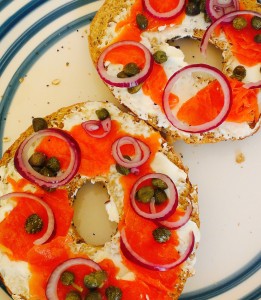- Jump to it!
It takes half a second, or less, to make that decision to get out of bed and be active. So when you have the thought – jump to it! Don’t spend time weighing up the pros and cons (weather, mood, physical state, etc.); by the time you’ve talked yourself into rolling back over to sleep you could have taken a brisk 20min walk! Bear in mind that planning in advance and exercising regularly increase the likelihood that you’ll stay motivated. 30
- Run, jog, walk
Run, or just walk, out of your front door and into the new day. Practice reframing your reasons for taking exercise – self-determination again… i.e. because you want to, not because you have to. Do this by focusing on how lucky you are to be alive, experiencing this new day, and to be healthy enough to be able to move your body, see the sun, feel the rain and wind. If you’re depressed, ill or in pain this will be difficult. But try to get up and move in whatever way you can. Get help. Resolve to keep trying, however tiny the steps. Positive habits can transform destructive cycles of mental energy into constructive ones – but it will take time, effort and support if you’re not used to thinking that way.

- Good, Better, Best
Change the way you make your decision to exercise by re-imagining the activity with focused visualisation. Instead of concentrating on the blast of icy air that hits you when you open the door, focus instead on the warm glow you’ll feel when you get back indoors, the wonderful invigorating shower or the delicious breakfast. And if you don’t manage it – don’t feel guilty. Just be kind to yourself and resolve to do it the following day. Self-compassion rather than guilt is more likely to improve your motivation. 31
References
(30) Schmeichel, B. J., Harmon-Jones, C., & Harmon-Jones, E. (2010). Exercising self-control increases approach motivation. Journal of personality and social psychology, 99(1), 162.
(31) Breines, J. G., & Chen, S. (2012). Self-compassion increases self-improvement motivation. Personality and Social Psychology Bulletin, 38(9), 1133-1143.


